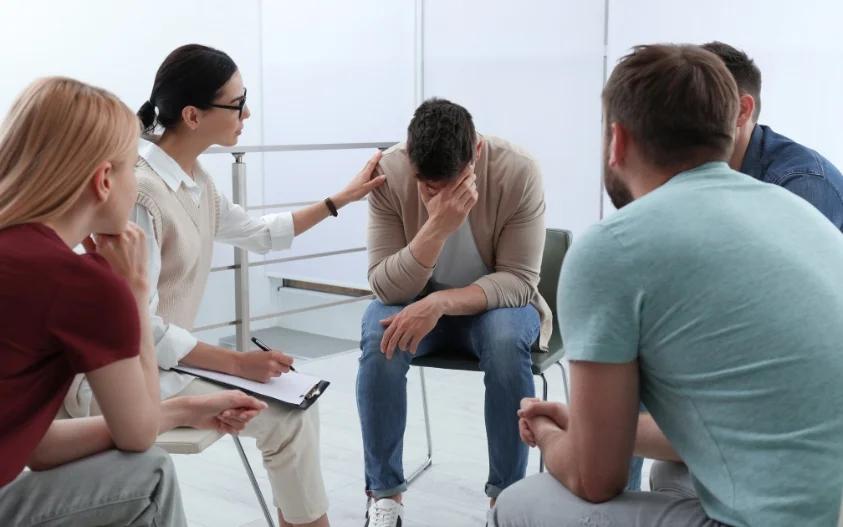24/7 Helpline:
(866) 899-111424/7 Helpline:
(866) 899-1114
Learn more about Bipolar Disorder Treatment centers in Pacific Palisades
Bipolar Disorder Treatment in Other Cities

Other Insurance Options
Beacon

Anthem

Self-pay options

CareSource

Sutter

BlueCross

Ceridian

Optima

Group Health Incorporated

Oxford

Magellan Health

Health Partners

Medical Mutual of Ohio

Kaiser Permanente

Aetna

PHCS Network

Highmark

UMR

Ambetter

Absolute Total Care

Greenfield Lodge – Men’s Sober Living
Greenfield Lodge – Men’s Sober Living is a private rehab located in Pacific Palisades, California. G...

Bridges to Recovery
Bridges to Recovery is a private rehab located in Pacific Palisades, California. Bridges to Recovery...

















